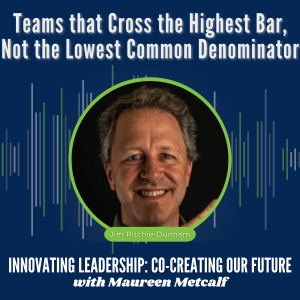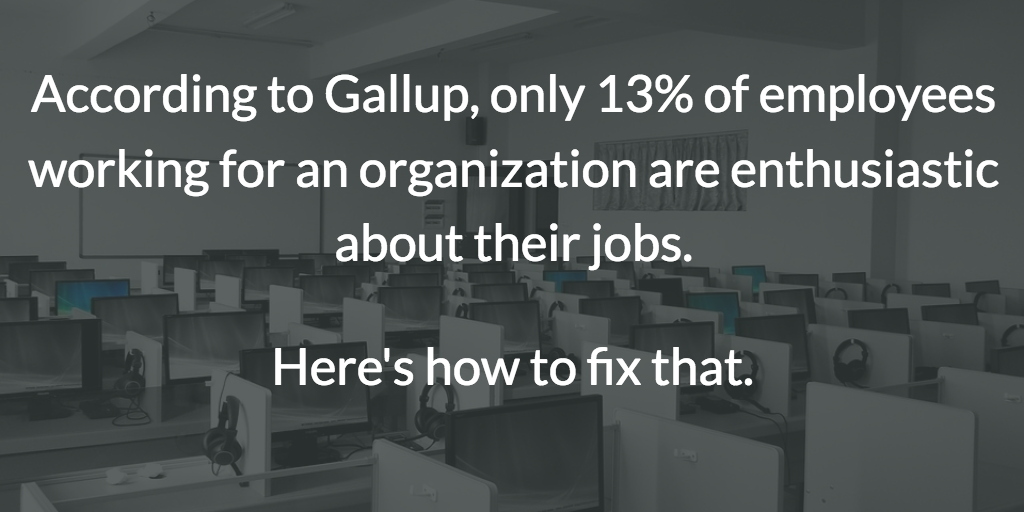
Monday Mar 20, 2023
S3-Ep7: Teams that Cross the Highest Bar, Not the Lowest Common Denominator
Guest: Jim Ritchie Dunham
For people working in groups, we have often seen the group perform to the level of the lowest common denominator. This conversation provides a high-level framework for leaders to refine their approach to increasing team effectiveness by leveraging the concept of “room to roam.” Room to roam looks at five key variables we believe are the foundation when looking at leadership successful performance in groups. The five perspectives are: 1. Leadership maturity 2. State development 3. Years of experience 4. Mindfulness 5. Ability to identify and “co-host” or build on the perspectives in the room This conversation explores the five perspectives in greater detail as well as the idea of “co-hosting” as a tool to change the way the group works. Another critical element of group functioning is the agreements they have with one another on how they operate.
Maximizing Team Interactions: Moving Beyond the Lowest Common Denominator’s Reign

This blog is drawn from a paper by Jim Ritchie-Dunham & Maureen Metcalf, Co-hosting: Creating Optimal Experience for Team Interactions, Integral Leadership Review, November 2016. Jim and Maureen also recorded a podcast.
Christopher, the CEO, walked into a planning session to get his full team on the same page for how to move key initiatives forward for the upcoming year. His leaders were all in alignment on the core purpose of the organization and how to accomplish it. During the discussion, everyone gave unbiased input to move the organization forward, irrespective of personal interest. Christopher was highly skilled at understanding the point of view of all participants and synthesizing the various points of view of his trusted leaders to create solutions everyone could support.
Does this scenario describe your normal business meetings? How is it different?
We want to explore the idea that groups can leverage the skills of individuals across five key perspectives and create an environment in which each participant operates at his greatest level of contribution. We call this the alchemy of co-hosting, whereby the co-host, in conjunction with the participants, invokes a very different mindset and process for the team to function.
The Challenge
“Less than one-third of U.S. employees have been engaged in their jobs and workplaces [since 2000]. According to Gallup Daily tracking, 32% of employees in the U.S. are engaged — meaning they are involved in, enthusiastic about, and committed to their work and workplace. Worldwide, only 13% of employees working for an organization are engaged.” – Gallup
Much of our work is done within teams of highly effective and highly compensated people. We have found that these teams often function at the level of the least common denominator. Many people, especially leaders, move from meeting to meeting all day. They often do this with little awareness of their specific role in the meeting and the value they bring. This is the culture of many organizations. When asking a cohort of vibrancy community members what they experienced in these teams, they suggested that while the participants were generally strong employees with good skills, they were often disengaged, and some actively disrupted the work or found ways to interfere with the meeting goals. In some cases, the participants did this as a passive-aggressive response; in some worse cases, they did it just for personal entertainment. So, what is the antidote to this high level of disengagement considering five key factors other than the highest rank present? How do we capture the highest input level from each person to create a higher level “field” of operation than any individual would have access to by working alone?
The Approach
We look at five different perspectives or measures of intelligence and then explore how the art of co-hosting can leverage all five intelligences of the participants to create an environment that calls forth the greatest possible capacity in the group.
The five perspectives are:
- Leadership maturity – describes how adults mature throughout their lifespan, attending to ever-increasing levels of complexity in their thinking, emotions, and behaviors
- State development – describes where people focus their attention, ranging from what is immediately in front of them to what is abstract and spiritual.
- Years of experience
- Skill to identify the perspectives in the room
- Co-hosting skill – the ability to identify the perspectives in the room and create an environment and approach that leverages the maturity, state, and skills of the participants
It is interesting to note that each perspective is important for an organization to create holistic solutions to its many complex challenges. For that reason, it is important to recognize each of these perspectives and be able to identify, recruit, and create environments that genuinely leverage each of their gifts.
Integrating the five perspectives individually allows an effective co-host to create the “container” or space to leverage each to the participants’ greatest potential rather than the traditional lowest common denominator.
Summary
During this era of increased complexity and accelerated need for change, we must identify methods and processes to help us navigate our challenges. Optimally, these methods and processes would create the greatest impact for all involved—creating an optimal individual experience and a holistic solution for the organizations or groups involved.
We believe the solution integrates a solid process that integrates five key perspectives and a presence of being within the co-host to create the desired outcome. Both elements are critical.
We have an opportunity to enhance the experience and the impact we have in trying to solve problems. By building the capacity to co-host and using this process, we increase the probability of solving our most complex problems and enjoying the process. Knowing this is possible helps us regain hope that we as a society can resolve the mounting list of intractable problems we hear of daily on the news.
Authors
Jim Ritchie-Dunham is president of the Institute for Strategic Clarity, a global research nonprofit, president of Vibrancy Ins., LLC, a global consultancy and publisher, president of the private operating foundation the Academy for Self-Discovery Leadership, an adjunct faculty member in Harvard’s program in sustainability leadership, and Adjunct Professor of Business Economics in the ITAM Business School in Mexico City.
Jim authored Ecosynomics: The Science of Abundance (2014), co-authored Managing from Clarity: Identifying, Aligning and Leveraging Strategic Resources (2001), has written many articles on systemic strategy for academic and practitioner journals, and blogs regularly at jlrd.me.
As a student of human agreements, Jim Ritchie-Dunham brings over 25 years of research and insights gleaned from working with groups of all make-ups. Jim named Ecosynomics, the emerging social science of the agreements that guide human interactions. Ecosynomics provides a framework rooted in economics and the sciences of human agreements that begins with an initial assumption of abundance, not scarcity, and a wider view of the human being.
Maureen Metcalf, CEO and Founder of Innovative Leadership Institute is a renowned executive advisor, author, speaker, and executive advisor whose 30 years of business experience provides high-impact, practical solutions that support her clients’ leadership development and organizational transformations. Maureen is recognized as an innovative, principled thought leader who combines intellectual rigor and discipline with an ability to translate theory into practice. Her operational skills are coupled with a strategic ability to analyze, develop, and implement successful profitability, growth, and sustainability strategies.
Maureen has published several papers and articles and speaks regularly on innovative leadership, resilience, and organizational transformation. She is the author of the award-winning Innovative Leadership Workbook Series and the co-author of The Innovative Leadership Fieldbook, and she is the winner of an International Book Award for Best Business Reference Book. She is also a regular contributor to Forbes.com.
No comments yet. Be the first to say something!